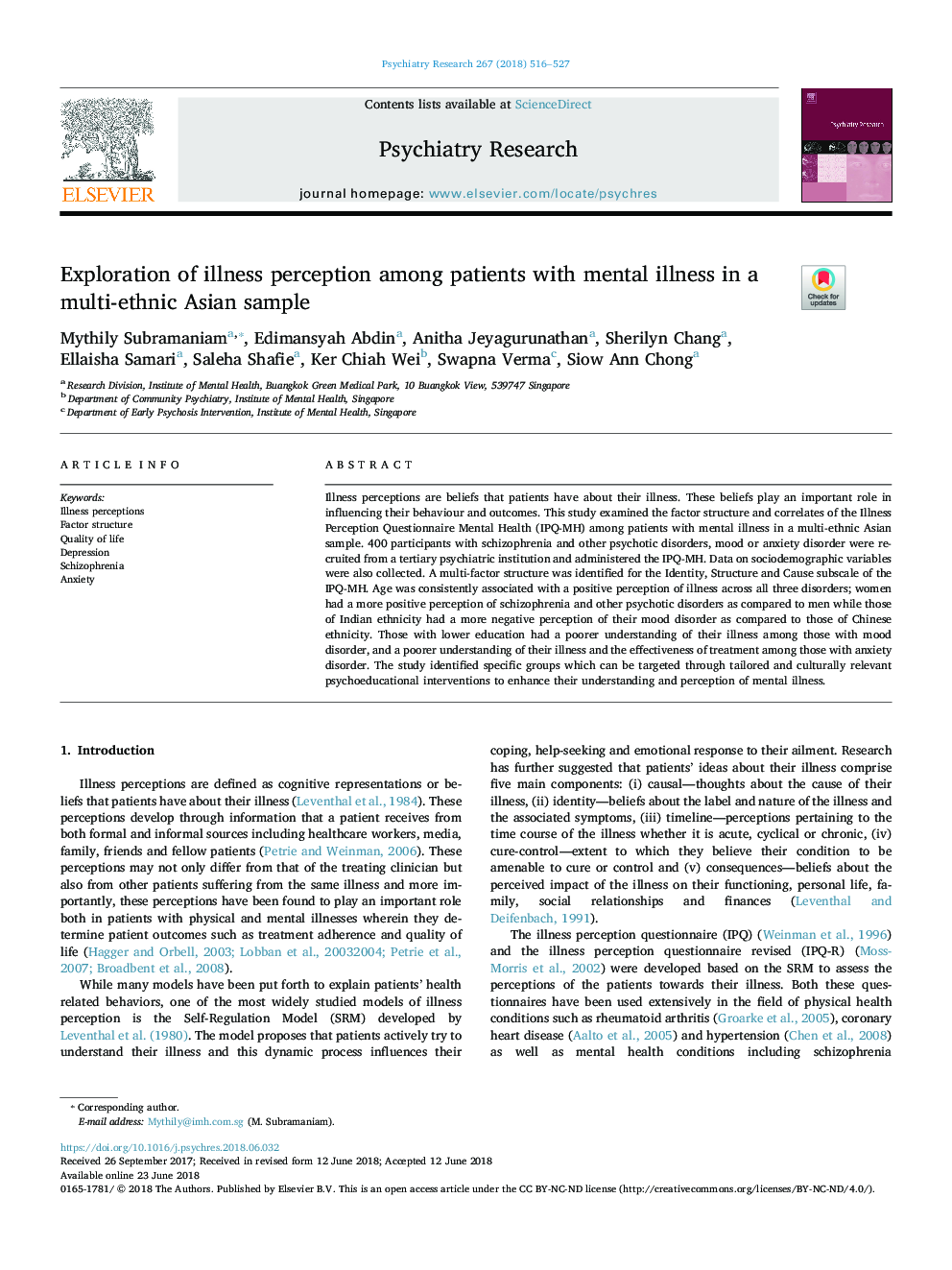| Article ID | Journal | Published Year | Pages | File Type |
|---|---|---|---|---|
| 6811403 | Psychiatry Research | 2018 | 12 Pages |
Abstract
Illness perceptions are beliefs that patients have about their illness. These beliefs play an important role in influencing their behaviour and outcomes. This study examined the factor structure and correlates of the Illness Perception Questionnaire Mental Health (IPQ-MH) among patients with mental illness in a multi-ethnic Asian sample. 400 participants with schizophrenia and other psychotic disorders, mood or anxiety disorder were recruited from a tertiary psychiatric institution and administered the IPQ-MH. Data on sociodemographic variables were also collected. A multi-factor structure was identified for the Identity, Structure and Cause subscale of the IPQ-MH. Age was consistently associated with a positive perception of illness across all three disorders; women had a more positive perception of schizophrenia and other psychotic disorders as compared to men while those of Indian ethnicity had a more negative perception of their mood disorder as compared to those of Chinese ethnicity. Those with lower education had a poorer understanding of their illness among those with mood disorder, and a poorer understanding of their illness and the effectiveness of treatment among those with anxiety disorder. The study identified specific groups which can be targeted through tailored and culturally relevant psychoeducational interventions to enhance their understanding and perception of mental illness.
Related Topics
Life Sciences
Neuroscience
Biological Psychiatry
Authors
Mythily Subramaniam, Edimansyah Abdin, Anitha Jeyagurunathan, Sherilyn Chang, Ellaisha Samari, Saleha Shafie, Ker Chiah Wei, Swapna Verma, Siow Ann Chong,
